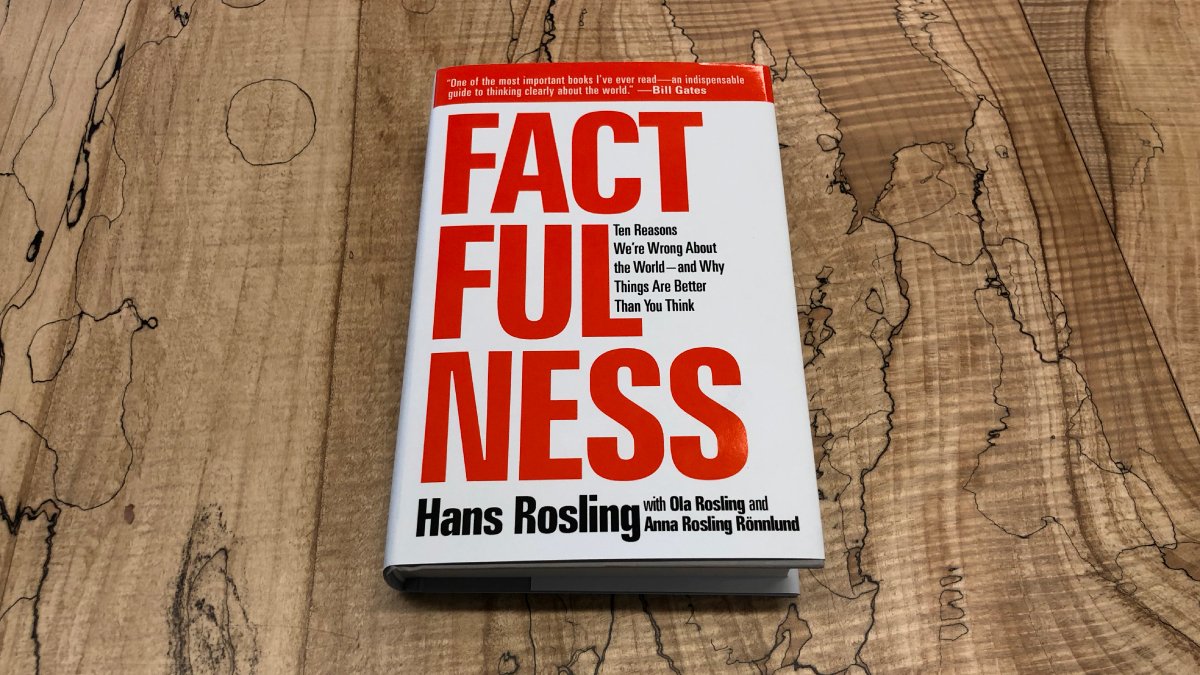In 2016, 4.2 million babies died before the age of one. 4.2 million. Can you even imagine 4.2 million of anything? Think for a moment of the tragedy that each of these deaths for the parents. It is hard to think that this number as anything but massive. Yet Hans Rosling uses this as an example to teach us how the world is becoming better.
In 2015, the number of babies who died before the age of one was was 4.4 million, and in 1950 it was 14.4 million. Suddenly the 4.2 million seems smaller and, actually, it has never been lower. But what if fewer babies are being born and that is why the number is reducing? In 1950, 97 million children were born; 15% died. In 2016, 141 million children were born and 4.2 million died, 3%.
So we can see that we’ve seen a massive improvement in the reduction of infant mortality, but I hope you will agree that 4.2 million babies dying before their first birthday is still far too big a number.
This example from Hans Rosling’s book helps to summarise its theme: the world is both bad and better. Bad for the number of child deaths (and many other issues), but better for these figures are going in the right direction. Rosling doesn’t give us a series of facts to change how we think about the world. Instead, he challenges our instincts and teaches us how to override them.
Each of the ten chapters deals with a different instinct such as: negativity, blame, fear and urgency. The book draws on rich anecdotes from Rosling’s life as a doctor in Mozambique and a Global Health Professor, and explains how the onus is on usto recognise when our instincts are distorting the facts. Right from the beginning it is both engaging and challenging. For one thing he outlines why we are fifty years out of date if we are still talking about the ‘developing’ and ‘developed’ worlds.
It doesn’t stop there. Rosling provides a new framework to see the world: four different levels defined by income. He compares and contrasts the different levels, outlining how income has a bigger influence on standard of living than religion, culture or even democracy.
For those of us who care about truth in an apparent ‘post-truth’ age, it is vitally important that we stand up for facts. I wonder how this would change the way the UK does things; if our beliefs about the world were based on facts. Rosling uses some of the UN projections for the future. He explains that by 2040 the majority of those on Level 4 (the highest level) will not be in the West.
Although the UK is leaving the EU with what seemed like a very inward looking agenda, could this be flipped to open our eyes to the opportunities around the rest of the world? With the rising wealth outside the ‘West’ and with the majority of people in the world on Levels 2 and 3, could our businesses and services be tapping these markets better? Could we target our aid better, to where it will have the most impact?
In summary this book is well worth a read and I hope it will both inspire and challenge you. If you can’t take my word for it, here is a review by Bill Gates who said it was one of the most important books he has ever read. He even put his money where his mouth is by providing an e-copy for every American graduating college this year.

